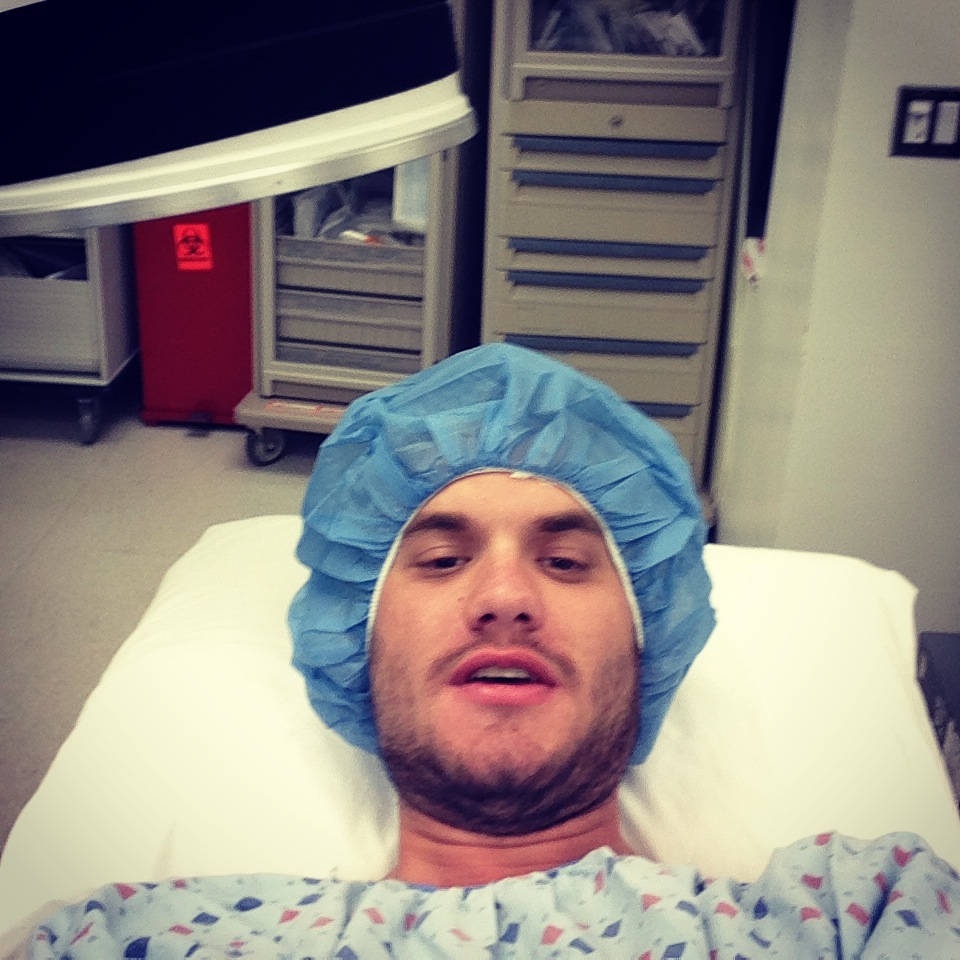As it would turn out, people don’t like spending time in the hospital, which is probably the least shocking thing I’ve ever heard in my life.
So here we are, another day… another caregiver feeling inconvenienced.
I Came across an op-ed over on HuffPost, “Long Hospital Stays Don’t Affect Only The Patient” and wouldn’t you know it, we’ve got another article where the person complaining isn’t the patient.
Let’s take a trip over to hospital land.
I’m sure we can all agree that hospitals really aren’t a place where we’d want to spend a lot of time. They aren’t quite in the same category as the Four Seasons. Yet if you’ve been living with a chronic illness long enough, you’re bound to end up inside one of them sooner or later.
This article comes from the perspective of someone who spent a lot of time in the waiting room of a hospital’s critical care unit as her dad was recovering from a heart attack, cardiac arrest and quintuple bypass surgery.
Obviously a stressful time for her family, indeed, but the article reads as a laundry list of complaints from someone who spends very little time in a hospital (which I guess, one could argue, is a good thing).
After spending nearly three weeks in the waiting room of the hospital’s critical care unit, my family and I began to truly loathe our surroundings.
The standard-issue vinyl chairs in various shades of taupe and grey-blue.
The scratchy flooring made to withstand innumerable wheelchair rolls but not comfortable or cozy enough to truly be called carpet.
The neon glare and buzzing hum of the vending machines.
And the boring wallpaper that seemed to say both “cheer up” and “it’s okay to cry ― he’s probably not going to make it.”…We were beleaguered, bored and exhausted beyond belief, and when my mom threatened to toss the Christmas tree out the seventh-floor window, we realized her frustration really wasn’t about the holiday decorations at all.
Could anything have made our experience more tolerable?
The writer points out that there is work being done to improve the family experience as long term exposure to hospital stays has actually been studied:
Additional research produced a tool known as the “critical care family needs inventory.” The assessment asks family members to rate the importance of basic needs, such as talking to the doctor every day and having their questions answered honestly. The tool has been refined over the years and adapted for use with specific populations, such as cardiac patients… A 2007 University of Michigan study found that someone whose spouse was in the hospital was nearly 1.5 times more likely to develop depression. And a 2008 study conducted by the University of Pittsburgh School of Medicine suggested that family members of ICU patients were prone to post-traumatic stress disorder, regardless of whether the patient had died. Six months after hospitalization, 35 percent of family members surveyed had PTSD.
None of that surprises me. Watching a loved one die slowly is, well, heartbreaking. It’s a very blunt reminder of our own mortality.
Thankfully in this writer’s case, her dad was able to recover and go home after what sounds like quite the experience.
The writer points out that they had some conversations with hospital staff that went better than others, and overall the time in the hospital had its up’s and down’s.
Now what I am about to say isn’t meant to take away from the stress and discomfort that comes with being in the hospital. The support system feels as much pain at the patient does, albeit in a different way, during a hospital stay. It’s just a different experience.
But… I mean come on. Give me a break.
This is another example of a medical situation that happens all the time, where we’re taking our eyes off the patient and making it about someone else. Yes, it does suck to see a family member or a close friend get very sick. I get it…. but at the end of the day, who is the one getting a tube shoved down his throat?
God forbid we don’t have consistent access to WiFi (the writer did have access in her case) while our loved ones are connected to ECMO. What are we to do?
Hospital life is uncomfortable… The goal should be to get out, not get comfortable with staying in.
Maybe it’s invalidating when you’re treated as a lesser priority than the person lying in the bed? Hospital life is overwhelming for people who aren’t accustomed to it – I get it.
Have you ever met a brilliant doctor, who studies something like… infectious disease, and is super outgoing and personable? I haven’t. I am yet to meet an infectious disease doctor with an explosive personality. That’s because if the layperson understood infectious disease as well as they did, we’d all be horrified beyond belief. It’s not super easy to convey the intricacies of molecular biology to someone going through hell.
My family members standing over my bedside ask as many questions as it takes to feel comfortable whenever we are in a scary situation. I doubt they understand half of the answers they’re receiving, but I think it makes them feel involved. Hell, I know I baby it down for my parents when I’m talking about CF and my family is super involved in this thing. They only need to hear what I want them to hear.
I’m not sure we need to crusade about changing the way hospitals operate so we can make things more convenient for visitors and family members. Don’t get me wrong, visiting hours and the support system staying in the hospital with me is incredibly important for my personal wellbeing, but when I’m feeling like shit and covered in tubes, my friend’s comfort throughout his visit is the last thing on my mind (sorry bro).
The article cites a conversation between the writer and Dr. Richard Senelick, who also wrote a blog on HuffPost about ICU stays. Dr. Senelick says, “everything about a hospital is set up for the convenience of doctors and medical staff…Visiting hours, the window of time a family has to meet with case workers and social workers ― nothing is designed for the convenience of the family.”
Yeah I sure as hell hope so. The doctors and staff are the people who are making sure that we, the patients, are walking out of the hospital instead of getting carried out in a box. If the machine breaks, so do we.
I certainly think it’s appropriate to recognize that hospitals aren’t doing the greatest job possible when it comes to accommodating the support system, but I don’t think that needs to be a huge priority when it comes to improving our care centers. Patient comfort, treatment access and survival rates must come first, and I think the writer of the HuffPost article would certainly agree, but I don’t love when we get these caregivers, family members, etc. waving their banner of inconvenience because of our health – I mean that’s what the root of this is. There’s a sickly family member (often times it’s me) and the rest of the family happiness and wellbeing goes to shit because of overloaded frustration and stress.
It calms down eventually, but the root of the issue here is the sick family member. Let’s not get away from that.
We probably can work to improve the family experience, but I’m not sure it’s something we need to be up in arms about as our health systems are in constant flux – the end of community hospitals and the move towards giant medical systems.
I always say the best part of moving on to adult care in CF is cutting out the middleman – my parents. I love my parents, and everything that they do for me to make my life a little easier, but at some point my family came to the realization that I’m the one living with CF, not them, and yeah… they will be inconvenienced by the life that I have to live.
Being a part of my support system comes with accepting that little fact, unconditionally.






